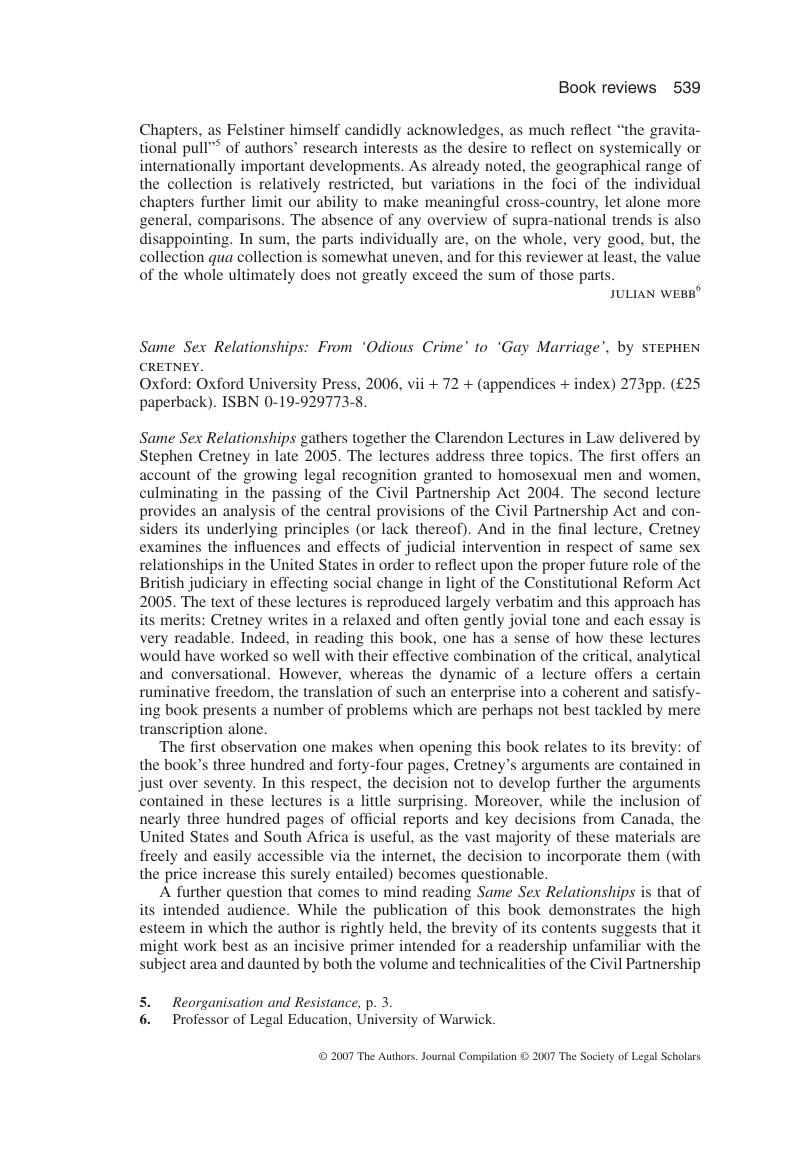No CrossRef data available.
Published online by Cambridge University Press: 02 January 2018

7. Same Sex Relationships, p. 37.
8. Ibid., p. 9.
9. The notification requirements also extended to convictions or cautions (where the offence is admitted) for the offence of buggery under section 12 of the Sexual Offences Act 1956. This offence encompasses the situation where one of the participants is under 18 and/or the act does not take place in private. The abolition of sections 12 and 13 of the Sexual Offences Act 1956 by the Sexual Offences Act 2003 means that these are no longer notifiable offences. For those previously convicted, Schedule 4 provides that an application can be made to the Secretary of State to be removed from the Register where it can be established that the participants were 16 or over at the time of the offence and that the activity was consensual (parallel provisions are made in respect of equivalent offences in Northern Ireland). However, this is a right to apply and is not a guarantee. The decision remains entirely at the discretion of the Secretary of State.
10. See, for example, D. Cooper, Sexing the City: Lesbian and Gay Politics and the Activist State, Rivers Oram Press (1994), C. F. Stychin, Law’s Desire – Sexuality and its Limits, Routledge (1995), L. J. Moran, The Homosexual(ity) of Law, Routledge (1996), R. Wintemute and M. Andenas (eds.), Legal Recognition of Same-Sex Partnerships: A Study of National, European and International Law, Hart Publishing (2001) and M. Waites, The Age of Consent: Young People, Sexuality and Citizenship, Palgrave Macmillan (2005).
11. Following the Massachusetts Supreme Court decision of Hillary Goodridge and ors v Department of Public Health and anor 798 N.E.2d 941 (Mass. 2003).
12. C. F. Stychin, “Not (quite) a Horse and Carriage – The Civil Partnership Act 2004” (2006) 14 Feminist Legal Studies 79-86, 79.